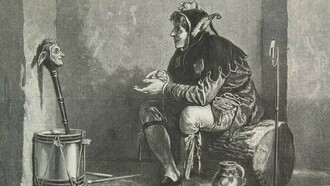Ten years ago, a global moral compass was set in motion from an unlikely place: the Vatican. In 2015, Pope Francis issued Laudato Si’—a papal encyclical that broke new ground by framing climate change not just as a scientific or economic challenge, but as an ethical and spiritual crisis. Now, a decade later, as the climate emergency deepens, the words of the late Pope Francis ring truer than ever.
Laudato Si’, subtitled On Care for Our Common Home, was revolutionary in both tone and substance. It marked the first time a pontiff directly addressed environmental degradation and its intertwined consequences for social justice. The encyclical’s urgent appeal cut across religious, political, and national boundaries. It wasn’t just a letter to Catholics—it was a wake-up call to humanity.
“The Earth, our home, is beginning to look more and more like an immense pile of filth,” Pope Francis wrote. With characteristic bluntness, he condemned the “irresponsible use and abuse of the goods with which God has endowed her.” In doing so, he squarely placed the blame not only on individuals but also on powerful nations and corporations that prioritize profit over sustainability. At the heart of Laudato Si’ was a prophetic denunciation of reckless industrialization and carbon emissions, particularly by developed countries like the United States and China. The Pope emphasized that the poor—those least responsible for environmental destruction—are often the first and most gravely affected by it. Rising seas, failed crops, heat waves, and water scarcity are not distant threats for many in the Global South—they are daily realities.
“We have to hear both the cry of the earth and the cry of the poor,” he implored. This dual cry—one of ecological degradation, the other of social injustice—has only grown louder since the encyclical’s release. According to the Intergovernmental Panel on Climate Change (IPCC), the last decade has been the hottest on record. Glaciers are melting, biodiversity is plummeting, and extreme weather events are becoming the new normal. Meanwhile, marginalized communities in Africa, South Asia, Latin America, and indigenous lands across the globe face the gravest threats with the fewest resources.
Pope Francis was not the first religious leader to speak out on the environment. But what set Laudato Si’ apart was its depth of analysis and universal scope. Drawing on centuries of Catholic thought—as well as science, philosophy, and Indigenous wisdom—he called for an “integral ecology,” one that acknowledges the interdependence of people, nature, and future generations. This holistic approach went far beyond carbon footprints. It invited a profound rethinking of human progress, consumption, and technology.
“Young people demand change,” the Pope said. “They wonder how anyone can claim to be building a better future without thinking of the environmental crisis and the sufferings of the excluded.” His message empowered a new generation of climate activists—many inspired by faith, but even more motivated by a shared sense of justice and urgency. From Greta Thunberg’s school strikes to grassroots movements in Kenya, Brazil, and the Philippines, the spirit of Laudato Si’ lives on in those demanding climate action, divestment from fossil fuels, and environmental reparations.
Still, Pope Francis was painfully aware that awareness alone would not suffice. In his later writings, he lamented that global responses remained “inadequate,” while the world continued “collapsing and may be nearing the breaking point.” His frustration reflected reality: despite the Paris Agreement and dozens of climate summits, carbon emissions continued to rise, and major polluters often failed to meet their pledges. In retrospect, Laudato Si’ reads less like a policy brief and more like a moral reckoning.
It was a document of its time—and ahead of it. A decade later, the world has yet to fully rise to the challenge it presented. Pope Francis did not live to see the transformation he so passionately called for, but his legacy endures. It is etched into the conscience of a global movement that sees the climate crisis not as a future threat, but as a present injustice.
His death marks the end of an era, but his vision continues to inspire. As climate catastrophes intensify and the window for meaningful action narrows, the message of Laudato Si’ gains new urgency. It challenges each of us—citizens, leaders, corporations, and faith communities—to rethink how we live, how we consume, and how we care for one another and the planet.
Perhaps now more than ever, we must ask: Are we listening to the cries of the earth and the poor? And if so, how will we respond?
As Pope Francis once wrote, “All it takes is one good person to restore hope.” In honoring his memory, may we each strive to be that one person—acting not out of fear, but out of love for creation and for each other. May Pope Francis rest in peace. May his call to protect our common home be a mission we carry forward—for his sake, and for the sake of generations yet to come.















